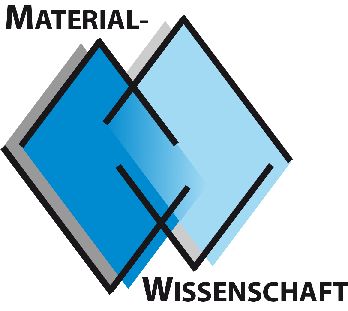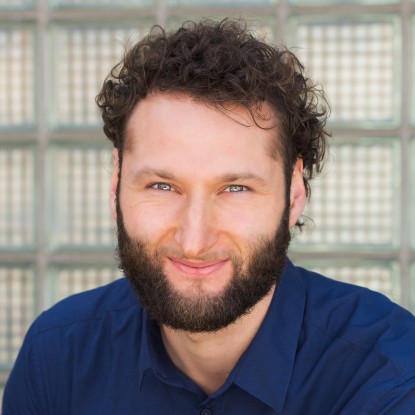Enlightening Ceramics
MaWi start-up Illutherm revolutionises the sintering process
2023/06/23 by Anja Störiko / Ruben Bischler
Creating defective ceramics in a targeted manner was the goal of Lukas Porz's doctoral thesis. In the process, he accidentally invented a faster and significantly cheaper and more environmentally friendly way of making ceramics. Intense UV light replaces the millennia-old kiln.
Based on this dicsovery, on 28 February of this year, Porz founded the start-up Illutherm with his fellow student Michael Scherer and the professionally experienced Miltiadis Vlachos. The name Illutherm says it all: radiation in the form of black light generates such intense heat that it can be used to fire ceramics. Porz demonstrates this with the prototype:
In the metal kiln he built – slightly larger than a microwave oven – a tangle of transparent cables with an optical lens at each end winds its way. They focus light – black light, as you know it from discos, but much more energy-intensive – onto one point . Some of this radiation is beyond the visible scale, in the ultraviolet range. “The necessary powerful lights have only been available for a few years,” Porz explains. In the beginning, he still used a laser; in the meantime, sufficiently strong LEDs are available. In this oven, they can generate temperatures above 1000 degrees Celsius.
And the experiments – together with Michael Scherer – worked like clockwork: Not only could various ceramic materials be fired that withstood all material tests. The two also melted metals in their kiln, such as paper clips. Above all, the most important quality parameters, such as the material density of the ceramics, were pleasingly good.
So the time had come to patent the process as “blacklight sintering”. In the meantime, five patents have already been applied for. The first ones came about with the help of the HIGHEST innovation and start-up centre, the last one is already a patent of its own. “HIGHEST has given us super support – more resources would almost be desirable there,” says Vlachos, praising the dedication of the staff:ing, from the initial orientation to contacts with financiers and networks to the business plan.
Seconds instead of hours: Illutherm speeds up firing
The classical ceramics industry is extremely energy-intensive. Usually, the high temperatures there are generated with fossil fuels. Ceramics burn for twelve hours or more until they are dense, solid and ready for use. This industry is responsible for about two percent of global CO2 emissions. To find a remedy here would be tantamount to a revolution.
Porz slides a coin-sized sample into the drawer at the bottom of the oven he constructed. The raw ceramic looks like a piece of chalk and feels like it. A conventional power socket is all that is needed to operate the kiln. When he switches it on, it glows and steams for a few seconds – and already the “chalk” has become a piece of perfect ceramic, about 20-30 per cent smaller than the blank, as is the case with normal firing processes.
But doesn't this fast process produce cracks and defects? Lukas Porz laughs: “That's exactly what we thought: the aim of my doctoral thesis was to produce ”defective“ ceramics with special properties”. However, sintering with UV light, intended as a “simple quick process”, produced flawless test pieces, free of defects and at lightning speed. “I was suddenly able to do more experiments in one day than in my entire ceramicist's life before,” says the materials scientist with a doctorate. After 20 seconds, it was clear which experiment had worked and which had not.
A technological leap – highly eligible for funding
Last autumn, the two materials scientists and Vlachos, who is experienced in the field of new business, joined forces – along with their own assets. In the same year, the finalists in the 2022 TU Ideas Competition received 200,000 euros in start-up support from the Federal Agency for Leap Innovations (SPRIN-D) and 50,000 euros from the European Space Agency (ESA). This enabled the team to rent space in the HUB31 technology and start-up centre in Darmstadt.
“Now is the time for a detailed business plan,” says Vlachos. The team is convinced that they could already produce the many small technical ceramics on the market – for example for laboratories, medicine, electronics, measuring instruments – with their method. Feasibility studies on test products are currently underway in initial collaborations with five companies. A third-generation kiln is to enable the firing of larger materials.
The ceramic market in Germany has a sales volume of over five billion euros, including one billion for technical products. And Illutherm's method has potential far beyond ceramics: “Our vision is to use our extremely energy-efficient thermal process everywhere in the future,” says Vlachos. That would be revolutionary and an important step away from fossil fuels: Illutherm needs only a fraction of the energy used so far to fire small workpieces – from (ideally renewable) electricity instead of fossil energy. In addition, the firing speed increases by a factor of 1000.
Our vision is to use our extremely energy-efficient thermal process everywhere in the future.
Miltiadis Vlachos
Quickly funded – bureaucratically baffled
The Illutherm founders want to offer their technology for various processes, build the devices themselves and push ahead with their development. At first, however, the inventors were up in the air: because the entry in the commercial register was delayed, they did not have a tax number, so they could neither access the promised funds nor hire staff or sign contracts. “We waited over three months for this!”, Vlachos and Porz are annoyed about this bureaucratic delay, which has now finally been overcome. In contrast, they say, Sprin-D was a bright spot in the bureaucratic jungle, with a simple application process and a commitment within six weeks.
“We now want to grow quickly,” says Vlachos. Ten hires in the first year and new premises will soon be needed, he said. “We would do it again,” say the three founders. “It's fun and tremendously fulfilling,” says Vlachos, who has experience in many professional fields, emphasising the appeal of the newness of a start-up. “We will only know in a few years whether it was good”. By then, Porz hopes to have established himself not only with Illutherm but also in academia – he is currently negotiating a junior professorship.




